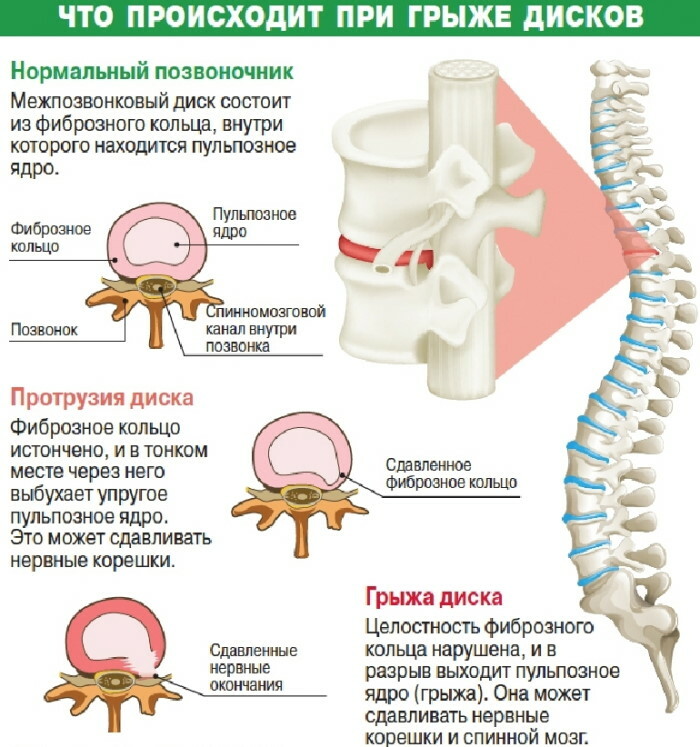After dyspepsia - a disorder characterized by non-specific symptom of uncomfortable sensations in the gastrointestinal tract. In a series of "indigestion: what it is - symptoms - treatment of" special concern is the stage of sourcing symptoms, which is complicated by many patients disregard the manifestations of gastrointestinal discomfort.
Only one in ten patients with dyspepsia seeks medical help. But we can not lightly "brushed aside" if it finds dyspepsia: what it is - the result of diet error, and can be, symptoms of cancer - from finding the causes sometimes depends not just return a comfortable digestion, but also life patient.

What it is?
Dyspepsia - disorders of the digestive and gastrointestinal tract, a complex of symptoms characteristic of many diseases, as well as the border states. The main causes of dyspepsia are the lack of digestive enzymes, causing insufficient absorption syndrome, or what happens more often, gross errors in the diet.
Causes of
The symptoms of dyspepsia may occur in any person at any age. If left untreated, the chronic form may develop. There are several main reasons that provoke the development of functional dyspepsia:
- psycho-emotional stress (developing pathology neurotic genesis);
- reception of some groups of drugs (antibiotics, antitumor agents, hormonal agents);
- error in the diet, the use of large quantities of nutrients (carbohydrates, proteins and fats). This is the main reason for the development of putrid, fat and fermentation dyspepsia;
- intoxication with household poisoning, viral infections and suppurative diseases;
- enhanced secretion of hydrochloric acid;
- motility disorders of the digestive tract.
The main causes of functional dyspepsia, include trauma and stress.
types of dyspepsia
Alimentary or functional dyspepsia is the following species:
- Putrid dyspepsia. Occurs when excessive use of proteinaceous products, especially those requiring a long time for digestion. Toxic substances formed during decomposition of proteins can become a cause intoxication patient. Basically this applies to the red varieties of meat (lamb, pork, beef) and their derivatives (sausages and other meat products), the abuse of which stimulates the development of putrid microflora bowel.
- Adipose (soap) dyspepsia. Called by the ingestion of too much high-melting fats such as lard and mutton and derivatives thereof.
- Fermentative dyspepsia. Called prevalence in the diet foods high in carbohydrates, causing fermentation (sweet and flour products, honey, fruits, peas, cabbage, beans, etc.), and the fermentation products (kvass, home-brewed beer, fermented fruits and etc.). In this case, in the gut develops fermenting microflora.
Dyspepsia is a consequence of enzyme deficiency, is of the following types:
- Pancreatogenic (lack of pancreatic enzymes);
- Gastrogennaya (caused by the violation of the secretory function of the stomach);
- Enterogenous (broken selection intestinal juice);
- Gepatogennaya (hepatic origin);
- Holetsistogennaya (induced secretion violation);
- Mixed dyspepsia.

Symptoms of different types of dyspepsia
The symptoms of dyspepsia may manifest itself in different ways, because they depend directly on the specific type of pathology. However, for all species and subspecies of dyspepsia is characterized by a number of similar symptoms:
- Discomfort in the epigastrium (upper abdomen): feeling of heaviness, bloating, pain sometimes varying intensity;
- Nausea;
- Burp. Single burping may not be a sign of frustration, but the constant evidence of dyspepsia;
- Heartburn. epigastric burning feeling in the retrosternal area and occurring at hit aggressive gastric contents into the esophagus, which normally should not occur;
- Flatulence. Feeling of abdominal distention caused by the increased gas production in the intestine, as well as increased gas separation;
- Frustration of a chair. A characteristic symptom of dyspepsia are irregular chair usually rapid.
Symptoms of dyspepsia fermentation:
- swelling in the lower abdomen, and copious gas evolution;
- frequent bowel stool (chair liquid, foam, with a light color and sour smell).
Symptoms of organic (enzymatic) dyspepsia:
- rumbling and transfusion in the abdomen;
- frequent emission of gases;
- nausea without vomiting;
- unpleasant taste in the mouth;
- frequent bowel stool (diarrhea);
- the presence of fecal food residue;
- fatigue and weakness;
- pain in the head and a bad dream.
Symptoms putrid dyspepsia:
- signs of toxicity;
- nausea and vomiting (see. and - how to get rid of nausea);
- headache, dizziness;
- weakness, and malaise;
- frequent stools liquid nature (stool dark and pungent smell).
Symptoms of dyspepsia fat:
- palpable pain 30 minutes after a meal;
- a feeling of heaviness in the stomach and overcrowding;
- belching and flatulence;
- abundant stool (faeces whitish and greasy luster).
diagnosis dyspepsia
In order to identify the patient's dyspepsia or that kind are carried out comprehensive measures. It requires consultation of physicians as a gastroenterologist, infectious disease, and a therapist. Depending on the symptoms of the disease, may appoint the following procedures:
- Ultrasound examination - provides an opportunity to identify chronic pancreatitis, zholchekamennuyu disease.
- Upper endoscopy - can detect reflux esophagitis, peptic ulcer, gastric cancer and other organic disease.
- X-ray examination.
- Electrogastrogram - reveals violations of gastroduodenal motility.
- Clinical blood test.
- Blood chemistry.
- General analysis of feces, fecal occult blood.
- Scintigraphy stomach - helps identify gastroparesis.
- Antroduodenalnaya manometry - allows you to explore the motility of the stomach and duodenum.
- Esophageal motility study - which allows to evaluate the contractile activity of the esophagus, its coordination with the work peristalsis upper and lower esophageal sphincter (LES and AMS)
- Esophageal pH monitoring - allows you to eliminate gastroesophageal reflux disease.
- Determination of gastric mucosal infection by the bacterium Helicobacter pylori.

dyspepsia treatment
Treatment of patients with dyspepsia should be comprehensive and include not only prescription drugs, but also actions for normalization of lifestyle and diet regime.
functional dyspepsia
functional dyspepsia treatment is general in nature. Patients are advised to eliminate salt from the diet spicy and fatty food. Eat small meals, but often (from 6 times a day). If necessary, can be assigned in addition:
- Antacids (Gaviscon, Almagell);
- H + -pompy inhibitors (omeprazole, rabeprazole, lansoprazole);
- Sedatives (Fenazepam, Adaptol, Grandaxinum).
fermentative dyspepsia
- When fermentation dyspepsia treatment should begin a diet low in carbohydrate foods. Allowed to eat high-protein food (meat boiled, broth, butter, chicken for a couple), you must reduce the amount of bread, potatoes, fruits and vegetables, baked goods, cereals.
- Applied adsorbing substance (Smekta, POLYSORB, neosmectin), probiotics (Atsipol, Laktofiltrum, Bifiform, Bifikol) and enzyme preparations from dyspepsia (Creon, pancreatin). As the recovery carbohydrate products introduced into the diet gradually, but in limited quantities. Menu and fixed dishes are determined, depending on the cause of this syndrome.
putrid dyspepsia
- Therapy is conducted similarly to the fermentation form. First of all, the patient is recommended a diet that excludes the protein (any variety of meat and fish, dairy products, eggs, etc.). Also, use of sorbents and probiotics. Typically, the enzyme preparations are used in the treatment process. The need for antibiotic therapy determines the doctor.
Intestinal dyspepsia. Primarily, it is necessary to carry out treatment of the underlying disease:
- Intestinal infections - antibiotics;
- Food toxins - the elimination of the general intoxication and the use of local local detoxifiers (Enterodez, Polisorb MP);
- Crohn's disease - the appointment of hormonal therapy.
If any of these conditions should not eat foods with lots of fiber. It is important to take sorbents (Smecta, Smektin, activated carbon, etc.), which are effective enough to eliminate the syndrome. To reduce the pain, you can assign antispasmodics (Drotaverinum, Kellin, etc.).
gastric dyspepsia
To resolve this syndrome should undergo therapy underlying disease. Depending on this medical tactics will change. If the cause of gastritis or dyspepsia steel peptic ulcer, the following therapeutic measures are recommended:
- If proved the role of H. pylori, the doctor assigns a complex antimicrobial therapy, which must include 2 of the antibiotic;
- A diet that excludes fatty, salty and spicy dishes. Also, do not eat foods rich in fiber (rye bread, fruit, vegetables, juices, etc.), as they may exacerbate the pain;
- Perhaps the prescribing of drugs, creating a protective shell for the gastric mucosa (De-Nol, sucralfate, etc.).
- It is necessary to normalize the acidity in the treatment of dyspepsia. Elevated excretion of hydrochloric acid can be eliminated "inhibitors of H + -pompy" (omeprazole, rabeprazole, lansoprazole), antacids and (Gaviscon, Almagell). At low acidity can stimulate acid-forming cells Pentaglyutsidom or juice of plantain;
Detection of open sores, or tumors are often an indication for surgical intervention. If the patient is picked hormonal disease, treatment can be determined only endocrinologist.
Folk remedies
In folk medicine, there are many recipes that are used in gastric dyspepsia. But before embarking on such treatment is necessary to visit the doctor.
The most effective recipes:
- Fennel. For the preparation of medicines it is necessary to take fennel fruit in an amount of 10 g, pour 200 ml of boiling water and heated to boiling (about 15 minutes on low heat). Then the broth to cool, drain and add boiled water into it so that the result is the initial volume. The entire amount of the drug need to drink in small portions throughout the day.
- Cumin / marjoram. Prepare healthful drink: 200 ml boiling water, lower comminuted cumin seeds and marjoram, leave for 15 minutes. This remedy should be consumed twice a day at a dose of 100 ml per reception.
- The roots of the elecampane grind. Mark 1 teaspoonful raw spoon and pour 200 ml of cold boiled water. Do not heat or boil! Infuses the drug within 8 hours, then filter and take 1/3 cup three times daily before meals. Duration of reception - 2 weeks.
- Prepare aloe 375 g, 625 g honey and 675 ml of red wine. Aloe leaves washed and cut into small pieces, mix with the remaining ingredients. Taking the drug need 1 teaspoon before meals - this is the dosage for the first 5 doses. In the future, it is recommended to take 2 teaspoon twice a day before meals. The duration of treatment with this medicine is at least 2 weeks, maximum use of the term - 2 months.
To decide on the treatment of dyspepsia, stomach traditional methods can not be alone. Only after consultation with your doctor, you can be confident in the safety of decoctions / infusions homemade use.

Prevention of dyspepsia
Healthy eating is a key requirement of prevention of any type dyspepsia. A healthy diet is based on several rules pertaining to the quality, quantity and culture of food consumption.
healthy nutritional standards are as follows:
- abandonment of strict diets;
- compliance proportions between proteins, fats and carbohydrates;
- limited consumption of fast food, semi-finished products;
- adequate consumption of fruits and vegetables;
- the use of salt in accordance with the recommended standard.
Measures for prevention of dyspepsia are:
- compliance with the rules of a healthy diet;
- control addictions;
- adequate response to stress;
- control of their own state.
If there is a predisposition to diseases of the gastrointestinal tract, and occasionally appears heartburn belching, flatulence notes, constipation or diarrhea, it is necessary to more closely relate to their own health. It is necessary once a year, be inspected by a gastroenterologist - it will help to identify at an early stage dyspeptic disorders.



